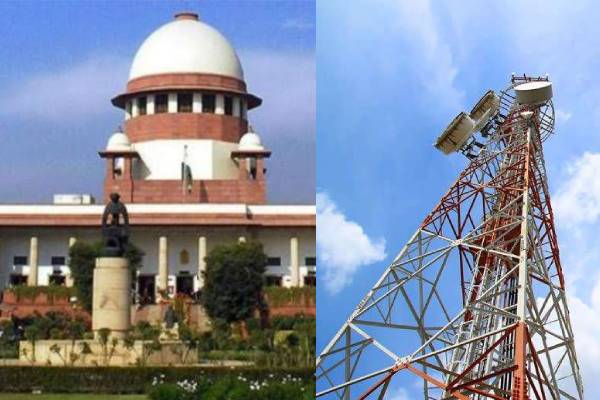Latest News
SC Allows Centre's Plea To Recover Adjusted Gross Revenue(AGR) Of Rs 92k cr From Telecom Companies: A Big Blow to Telcos

The Supreme Court on Thursday ruled in favour of the government on the AGR (adjusted gross revenue) issue, with grave implications for the sector, pushing the stocks of telcos down sharply. A bench led by Hon'ble Justices Arun Mishra, A.A. Nazeer and M.R Shah, gave the ruling. The government and the telecom sector were locked in a fight over the definition of AGR. In its judgment, the Court accepted the interpretation given to Adjusted Gross Revenue by the DoT and ruled against the telecom companies. By its judgment, various revenue heads were included within the net of gross revenue, thereby imposing a burden of around Rs. 92,000 crores on the telecom companies.
There were various haphazard things caused because of the verdict given by the SC which definitely disappointed various Telcos like Bharti Airtel said it was ‘disappointed’ by the verdict, which will ‘further weaken the viability of the sector as a whole.’ “We are disappointed by the verdict of the Hon’ble Supreme Court…This decision has come at a time when the sector is facing severe financial stress and may further weaken the viability of the sector as a whole,” an Airtel spokesperson said in a statement.
The appeals in question were filed by both the DoT and the telecom companies against an order of the Telecom Disputes Settlement and Appellate Tribunal (TDSAT). The case pertained to the definition of gross revenue in clause 19.1 of the licence agreement between the Government of India and the telecom service providers. As per the new telecom policy, telecom licensees are required to share a percentage oftheir adjusted gross revenue (AGR) with the government as Annual License Fee(LF). Moreover, mobile telephone operators were also required to pay spectrum usage charges for the use of radio frequency allotted to them.
Telecom operator moved to the Apex Court against the Telecom Disputes Settlement and Appellate’s Tribunal’s (TDSAT) order which ruled that certain non-telecom revenues like rent, profit on sale of fixed assets, dividend and treasury income would be counted as AGR on which licence fee would have to be paid to the government. "Telecom sector is under immense financial stress admitted by all stakeholders. Further demand of Rs92,000 crore will dampen the sentiment of telecom operators and raising funds for broadband, network expansion and Digital India will hit a significant roadblock," said Prashant Singhal, Emerging Markets, Technology, Media and Telecom Leader, EY.
He added that the impact will not be limited to just telecom operators but will have a domino effect on larger digital value chain. "This requires immediate intervention by all stakeholders to get the sector back in shape.” The ailing sector had claimed through the unified operators association that the AGR only include license and spectrum fees. The government on the other hand was insistent that it would include much else that would take the dues of the sector to thousands of crores.
In 2015, the TDSAT had ruled that it would include apart from license fees and spectrum user charges, rent, dividends and profits on the sale of assets. The TDSAT has excluded bad debt, forex fluctuations and sale of scrap from it. Both sides had challenged the order. Telcos have to pay around 3 of AGR as spectrum charges and another 8 per cent as license fees. The dues are estimated at well over Rs 92000 cr. Though the government may be able to only recover only half of that. Most operators have either exited the sector post the 2G ruling or are not doing well. The entry of Reliance Jio into the sector has only made things worse for the old players such as airtel and Vodafone. SC verdict has brought a major blow to the Telecommunication sector which will have to be borne by them as a consequence of Adjusted Gross Revenue(AGR).
Document:



































































































